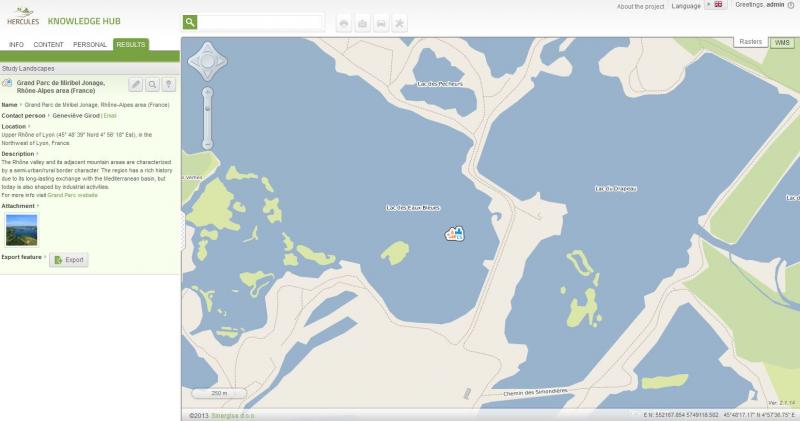Project Hercules

Sinergise is a partner in the newly funded HERCULES project, a joint collaboration of research institutes, universities, SMEs and NGOs working on a newly funded HERCULES project.
HERCULES (“Sustainable futures for Europe’s HERitage in CULtural landscapES”) is a collaborative project funded by the European Union’s 7th Framework Programme (FP7-ENV.2013.6.2-7, Development of advanced technologies and tools for mapping, assessing, protecting and managing cultural landscapes in rural areas) striving for the empowerment of public and private actors to protect, manage, and plan for sustainable landscapes at local, national, and Pan-European scales.
Sinergise participated in the inaugural meeting of the HERCULES project on the 2nd and 3rd of December, 2013. The meeting, during which refinements of the projects’ timetable, proposed deliverables and future plans were discussed, took place at the European Landowners’ Organization in Brussels.
Key features
The HERCULES project has the following key research aims:
- to synthesize existing knowledge on the drivers, patterns, and outcomes of persistence and change in European cultural landscapes,
- to close knowledge gaps regarding the dynamics and social-ecological values of cultural landscapes,
- to generate tools for landscape observation and modeling in order to understand values of and threats to cultural landscapes in Europe,
- to develop a strong vision of pathways towards protecting landscape services,
- to provide policy makers and practitioners with a cutting-edge Knowledge Hub to guide decision-making for the benefit of cultural landscapes.
Additional Partners
Humboldt-Universität zu Berlin (Germany), University of Copenhagen(Denmark), Conseil Innovation Management et Environnement(France), European Landowners’ Organization (Belgium), Forest Communications (UK), Landscape Research Group (UK), Stichting VU/VUMC (VU University Amsterdam) (Netherlands), Swiss Federal Institute for Forest, Snow and landscape Research (Switzerland),Tallinn University (Estonia), University of Freiburg, (Germany),University of the Aegean-Research Unit (Greece), Uppsala University(Sweden)

